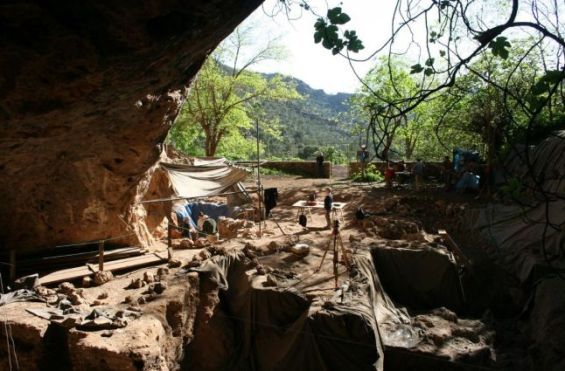Ancient Moroccans were more of plant gatherers than hunters. 13,000 years ago, way before farming started, ancient people who roamed North Africa, ate a lot of plants and not just meat as previously assumed.
A new study published on Monday, April 29th, conducted by a group of Moroccan and international scientists, looked at the teeth and bones of hunter-gatherers in North Africa to understand their diet. ‘
Using a comprehensive multi-isotopic approach, the scientists used «zinc and strontium analysis on dental enamel, bulk carbon and nitrogen and sulfur isotope analysis on dentin and bone collagen, and single amino acid analysis on human and faunal remains from Taforalt», in northeastern Morocco, reads the study published on Nature.
Plant gatherers well before farming became widespread
The findings, as the study indicates, revealed a substantial plant-based component in the diets of these hunter-gatherers. While scientists have always thought that ancient people from North Africa started relying on plants only after farming began to spread, evidence brought by the study indicates that plant gathering started much earlier.
«The transition from hunting-gathering economies to agriculture-based ones, also known as Neolithization, is one of the most important dietary revolutions in human history», argue the scientists.
However, they indicate that in North Africa «a progressive intensification of plant consumption is believed to have begun long before domestication in the Neolithic».
This is evidenced in remains of plants and special marks on teeth. «Our study highlights the importance of the Taforalt population’s dietary reliance on plants, while animal resources were consumed in a lower proportion than at other Upper Palaeolithic sites with available isotopic data».
«The potential early weaning of infants at Taforalt reinforces the notion of a plant-based food focus for the population, potentially extending to the primary source of nutrition for infants», the study suggested.
Studying the diet of this pre-agricultural human group from Taforalt is a big step forward in understanding how people in North Africa ate in the past.





 chargement...
chargement...













